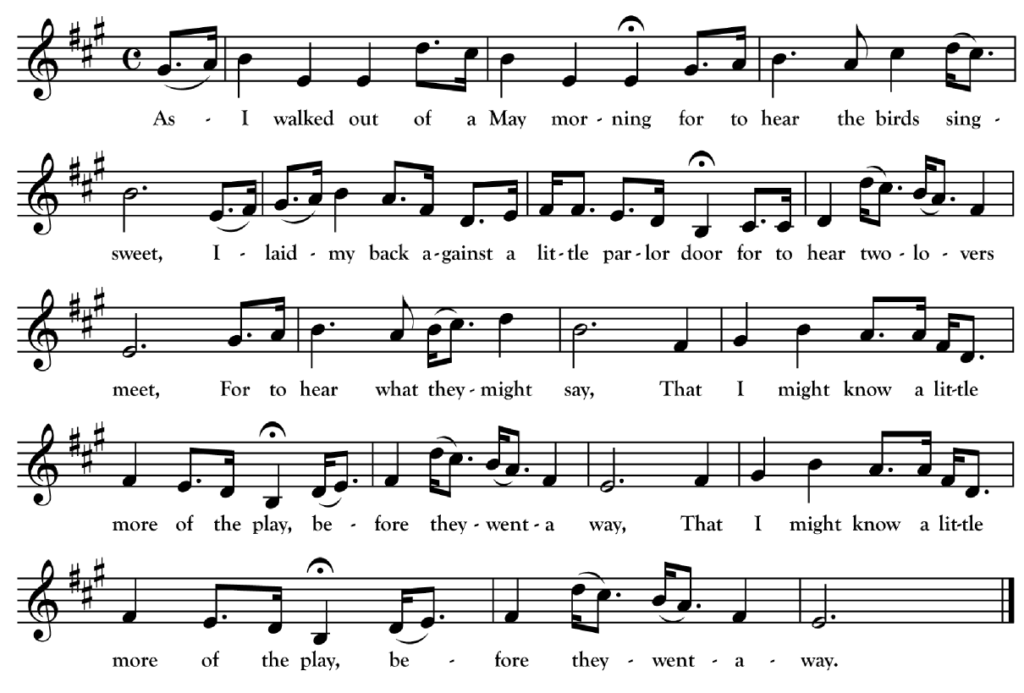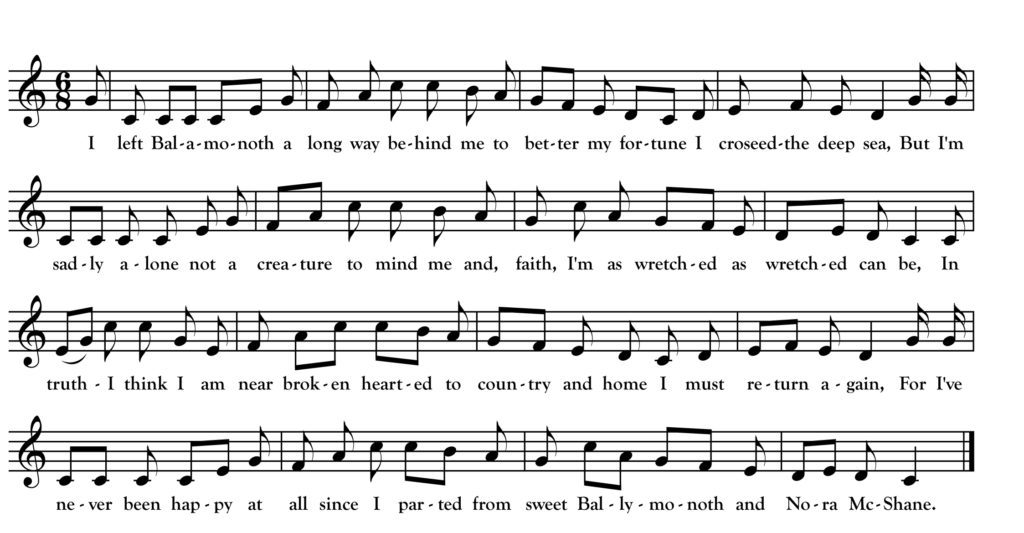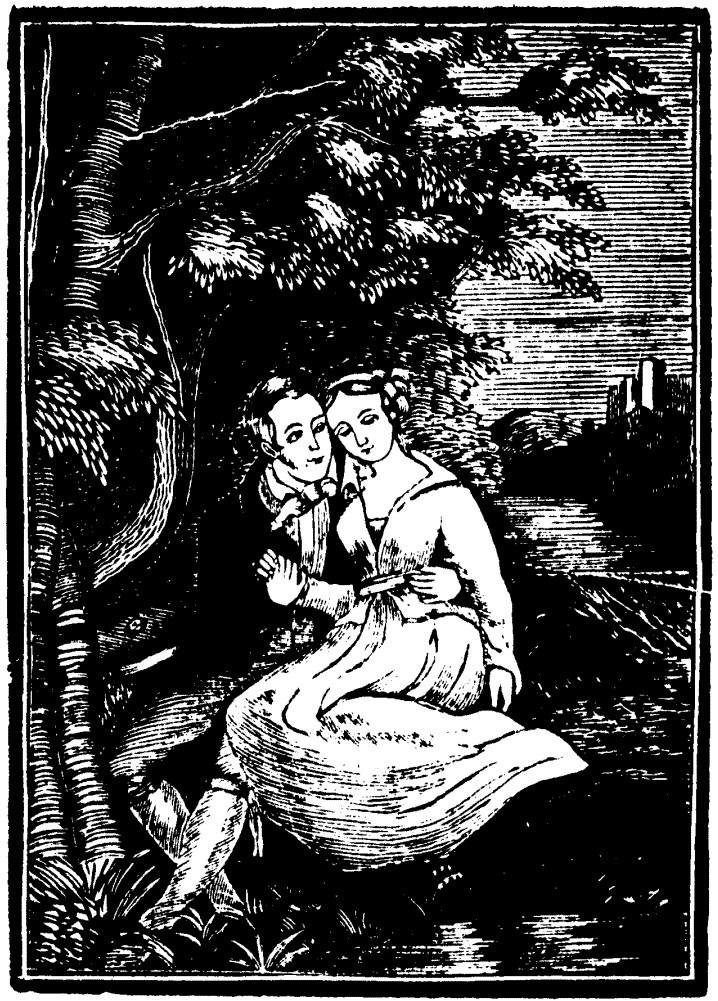May Morning

As I walked out of a May morning for to hear the birds sing sweet,
I laid my back against a little parlor door for to hear two lovers meet,
For to hear what they might say,
That I might know a little more of the play, before they went away,
That I might know a little more of the play, before they went away.
Come-a set you down upon my knee ’til I speak one word to thee,
For it’s full three quarters of a year or more since I spoke one word to thee,
For it’s full three quarters of a year or more since I spoke one word to thee.
Oh I shant sit down, I won’t sit down for I have not a moment of time,
And besides you have got a true lover and your heart is no, not mine,
And besides you have got a true lover and your heart is no, not mine.
Oh it’s hard to believe what an old man says, their [unintelligible]are two tongues,
But much less to believe what a young man says, he purports on to anyone,
But much less to believe what a young man says, he purports on to anyone.
But if I was to live for a year or more and God to grant my grace,
I would buy me a bottle of dissembling water for to wash off her flattering face,
I would buy me a bottle of dissembling water for to wash off her flattering face.
This month we have a beautiful and unique variant of a well-travelled song that many will no doubt recognize. Sometimes called “As I Roved Out” or “The False Young Man,” many versions include the “T stands for Thomas/P stands for Paddy” verse that is missing here. The above is my own transcription based on two recordings made in 1935 and 1942 of singer Thomas Armstrong of Mooers Forks, New York. Mooers Forks is in the far northeastern corner of the state near Lake Champlain and just two miles from the border with Quebec. You can hear the recording of Armstrong (the earlier recording is labeled “Two Lovers Meet”) via the digitized Flanders Ballad Collection on archive.org.
Armstrong’s first verse is longer than the others and after that he uses the first two lines of melody only, repeating the second line for the repeated text.



